Alex Murray - the making of GO NOW
Written by Bulls Head Bob
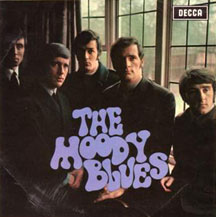
Classic records are those that will be with us forever. They are recordings of songs that can never be re-made or judged alongside the originals because the recorded sound of those classics is the sound of the generation they were born into. They were crafted in some cases, with limited resources by the producers and musicians who worked hard together to forge an understanding and create an almost tangible feeling of what they were trying to achieve.
In 1964 one of the most important records of the day, recorded by one of the best R&B bands to emerge from Birmingham during the Brumbeat era, started without any musical intro, just three sung words "We've already said...". Those three words were followed by one of the best recorded piano sounds ever, heavy waltz tempo piano bass notes descend arriving at the next lyric, "Goodbye" where the piano is then joined on its downward spiral by a Gibson bass, thickening the sound till it reaches its conclusion of a vocal harmony chorus. The song of course is 'Go Now'. The band was The Moody Blues. The producer (and Manager) was Alex Wharton - known in those days as 'Alex Murray'.
"That night they blew the crowd away!"

To reflect a little, I have to state that those three sung words of the intro had the depth of soul and blues in them that you would only expect to have heard from the greatest black vocalists of our time - not from the skinny white boy, Denny Laine. That is not the only highlight of this recording as the song is not an easy one to sing, with it's staccato lyrics being squeezed into what is a small verse space. This rush of words is balanced very effectively by the lingering backing vocals of haunting 'Oohs' and 'Errs'. A subsequent unaccompanied piano 'run down' is then followed by three climbing chords that herald the arrival of Mike Pinder's thundering piano solo, (which has a touch of the Ramsey Lewis sound to it) with the bass and percussion blending double note runs in tandem, driving the solo along beautifully.
The recording itself is tremendous and has a real gritty 'live' sound to it, not the sterile, weak sounding recordings that were so prevalent at that time. I was fortunate to have seen the Moodies at The Ritz when this song was at No 1 and the bands' performance on home soil was electric, driving R&B at its best with Denny spitting the words of 'Lose Your Money' and Ray Thomas growling on his harmonica. The whole of the group functioned as one unit, urged on by an enthusiastic crowd, just sheer bliss. The finishing number was of course 'Go Now'. It was a sublime night and I feel sorry for those who never saw them as an R&B group.
A short while ago I had been lucky to have made contact with the Moody Blues Manager and Record Producer, Alex Wharton (also known at times as Murray owing to conflicting stage names). Alex had kindly agreed to talk to me about the Go Now recording session. I asked him how the choice of that song came about.
THE SONG
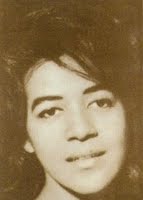
Alex; "Bessie Banks' 'Go Now' had been sent to me from America with a few other 45's by Tim Hudson. I gave it to the boys to try out at their house in Roehampton and became more enthused when I heard them start rehearsing the harmonies there. It was an unlikely chart contender, being in 3/4 time, but they gave it an individual quality that I found inspiring. By this time we'd released 'Steal Your Heart Away' and it had put them on the map, now we needed to make a real impact."
"The band had played the song for the first time in London at a Marquee gig and that night they blew the crowd away - took them somewhere else! My spine was electrified when I witnessed it. It was a unique song which matched their unique interpretation so I knew before we went into the studio that Go Now was the 'big one' if we could only get it right and re-capture the atmosphere they'd created at the Marquee."
THE STUDIO
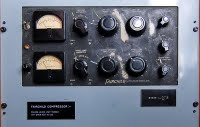
"First off we'd tried recording it at Chappel Studios in Bond Street but it just wouldn't come together in the three hour session that we'd booked. As the head of the Moodies management company, I had invested a lot of cash into the band for house and flat rentals, transport, clothes, equipment, instruments etc. so expensive studio time became a real funding issue."
"I had been talking to Phil Woods, who was trying to get a studio together at the back of The Marquee so, as a cost saving incentive, I decided to go ahead and use the under-construction studio as an experiment. The studio was, in fact, simply a garage with a home made 12 channel mixer; the only outboard gear being a borrowed echo plate and two Ampex recording decks (second hand, one mono and one stereo) from EMI."
"There was an odd collection of old BBC microphones and one modern condenser mic for the vocals plus we had the use of a Fairchild compressor for the vocal sound. Although its hard to be specific, I think we had a portable Revox stereo tape deck which we utilized for some mixing down of tracks and to overdub a couple of piano bass notes that had lost attack in the solo."
THE RECORDING SESSION
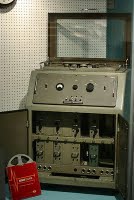
"The group were tired when they came into the session, but well rehearsed with the song. They had been gigging with it for a few weeks so had their individual parts off pat, so my only concern with them was a lack of freshness, especially with the backing vocals and lead vocal. A lot of time was spent 'encouraging' urgency in the vocal harmonies and 'identification with character' from Denny. I don't remember how many re-takes there were, but they left the studio with sore throats I'm sure."
"More time was spent getting the piano sound right (mic placement on the grand and the EQ levels). Also Mike (Pinder) had a lot of 'drop-ins' to do on account of some of the 'sound on sound' bouncing losses. From my point of view it was a marathon session. The bands' recording session itself was about six hours straight. They were recording in between a hectic gig schedule, so they got away lightly because I couldn't keep them there to do more overdubs."
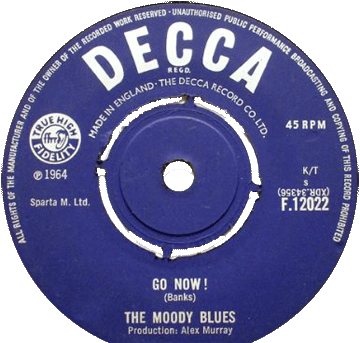
"For my part, I was committed for about forty hours over three days in all with Phil Woods, the engineer, whose commitment and enthusiasm matched my own (I gave him a credit on the label). He'd built, at my request, an EQ module specifically for the piano sound. The production time seemed outlandishly long. There was a never-ending series of sound on sound overdubbing to compensate for frequency and decibel loss incurred in previous 'bouncing' and there was some experimentation with mixing echo delay lengths."
"It sounds ridiculous, and it was, but I was so passionate about the track that I couldn't stop worrying at it, adjusting this and changing that till I was completely satisfied. The final result sounded like it had been recorded in a public lavatory, dirty but full of ambience which was what I was after. I was as pleased with it as I was exhausted!"
Over the years many people have questioned why the 'fade out' of Go Now is so short? Alex remembers; "The fade out was so abrupt because poor old Denny's voice had been punished during the recording session and as he was holding the last note his voice cracked. I was just too exhausted to return to it all again so I just pulled the fader on the final mix so I could go home and get some sleep!"
FROSTY MOSES
Shortly after the success of Go Now Alex became disillusioned with other management partners, and quit after he had tried unsuccessfully to get them to agree to the group members getting a bigger share of the money. Fast forward 5 years and Alex had decided to return to production and was on the look out for an act to promote.
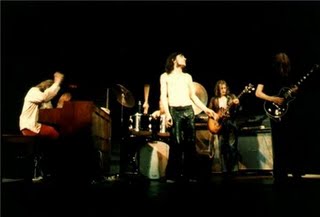
Alex; "There was a 'buzz' in London with everyone talking about the Birmingham band, Frosty Moses. I was visiting Lee and Kenny Everett one day, having decided I was going to re-enter the production game after a few years out, and they mentioned that Tony Hall had enthused about them."
"I decided to check them out and went to Brum to hear them play in Phil Myatt's club, MOTHERS. It was a deja vu moment for me, because that was where I'd first heard the Moodies. I was sold on them from their first number, 'People Say', and I thought 'this is ridiculous - another potential super-band'... I couldn't believe my luck!"
"After the gig we talked, and I convinced them to sign with us for management and recording; "Us" being myself and a guy called John French, who had agreed to finance the whole project I also brought in Phil Myatt too. I could see a massive future for the group."
"We got into the studio and recorded the song that had impressed me 'People Say'. But during this time I found out that John French was a financier with no money! - to put it mildly. Once again I found myself with a great band, a good recording in the can but unfortunately, with another bad business partner whose actions caused the whole project to fall apart at the seams. Who knows what would have become of Frosty Moses if not for that."
"Thanks Alex"...
In closing this article I have to say that the world of show business during the sixties was littered with predatory sharks who bled the life, and certainly the money, out of practically all of those big name acts that were around at the time, fuelled by false promises. There were however, amongst those predators, some guys whose actions and intentions towards the musicians was honest, supportive and principled - Alex Wharton was one of those.
Alex's musical background and experiences are fascinating for those of us who love the music business in its entirity. There is a certain reticence on his behalf to talk about those 60's days, or his rock and roll years prior to that, choosing instead to live a quiet life with his family in Wales. Respecting those wishes in mind I really wish to thank Alex for giving me his time to recount his involvement during those heady days. I for one, wish to thank him personally for producing one of the best records to have emerged from a Birmingham band.
Bob.
Copyright © Bulls Head Bob 2009